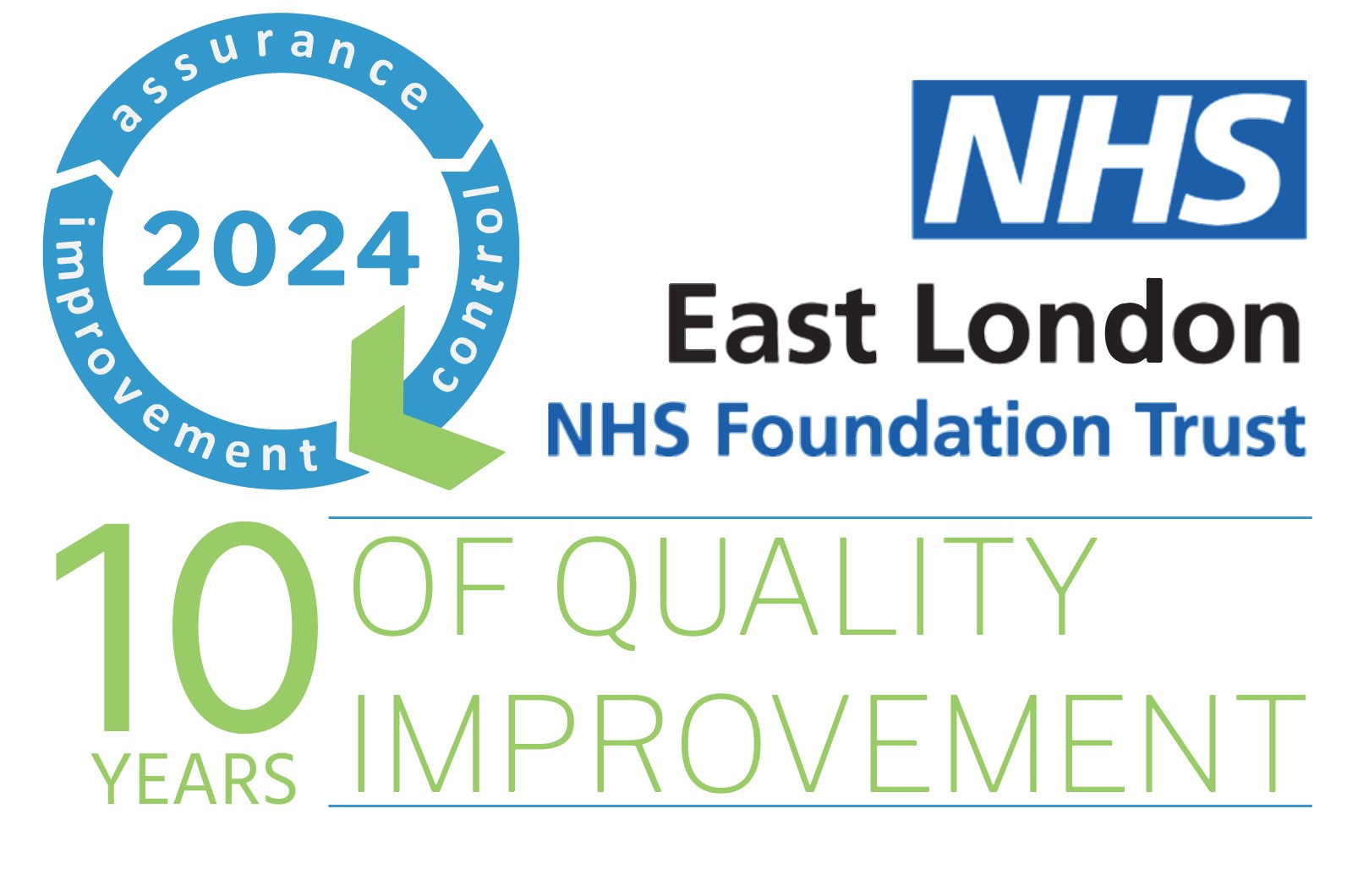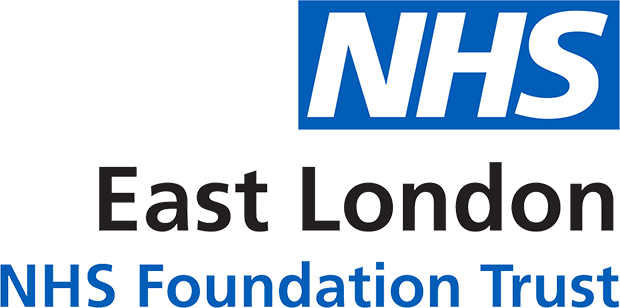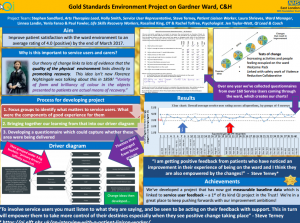Service User & Carer QI Stories
- Overview
- A Carers’ Perspective on Quality Improvement: A personal story
- A People Participation Lead’s perspective on QI
- Service User Perspective: Barriers to Engagement with QI Projects
- My Quality Improvement Journey…
- Quality Improvement (QI): What drives this?
- This is my ward round
Share this:
A Carers’ Perspective on Quality Improvement: A personal story
Thana, QI Communications Assistant, interviewed Zhenreenah; a carer and expert by experience client in August 2017, about her abundant passion and energy for engaging with QI Projects at the Trust. She shared her expert advice in this personal story.
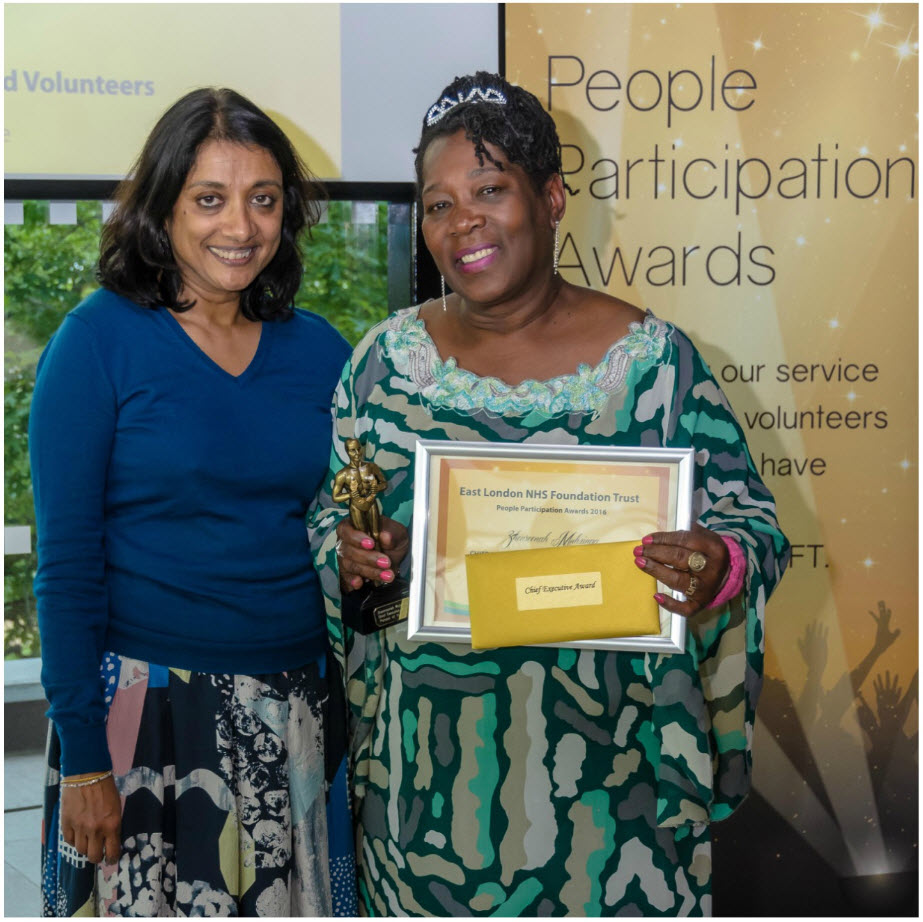
Zhenreenah
Carer | Expert by Experience
(Pictured with ELFT CEO Dr Navina Evans at the People Participation Awards)
Are you involved in any QI (Quality Improvement) projects currently? If yes, please could you share your story.
I am very passionate about Carers and based on my personal experience, I am committed to sharing my expertise to improving the service and Quality Improvement is the way forward.
One of the key issues for me was that Carers were not aware of what was happening in both the Trust and with Social Services in Newham. As carers we access services from both organisations. Services were in transitions and it was very challenging and we carers felt that there was a need to keep people/carers updated. There was a gap and we tried to address it.
One of the concerns was that previously integrated services were fragmented, as for example when social services were “disconnected” from East London Foundation Trust services (ELFT) without any communication with clients like us Carers. It was very confusing when it all suddenly disappeared including engagement with us carers’ group as we worked closely with both organisations.
Therefore, one of the early QI projects was the compilation of a carers’ pack which started as a mini project with a small group of passionate carers to address the confusion.
What was the project aiming to do?
Following suggestion from former ELFT staff, the need for a QI carer’s group was discussed and this led us to come together as carers to collect and share information about local services which we felt would be useful in our role caring for our families.
The key aim of the project was to collate the information about services which spanned various stakeholders so in essence we wanted to bridge the gaps in services so information was easily accessible.
We wanted to compile a reference document which clearly stated what carers were seeking and how best to access services. This led to the creation of the Carers’ Information Pack and quarterly Newsletters related to Mental Health in Newham.
What was your motivation to be part of the project?
I have a passion for carers. Many carers like myself are sometimes left in the dark and they need a voice to share their opinions. I now share my enthusiasm with others carers during the ELFT monthly induction sessions for new staff members joining the Trust.
This Carers’ Information Pack can provide information and help find carers who we don’t currently reach and also identify “hidden” carers who are not registered in the system as such. Many are just too busy caring, for their loved ones and have no clue that they’re Carers and in need of a statutory Carers assessment to acknowledge this.
It is estimated that there are currently approximately 24,000 carers. (Editor’s Note : This is not a definitive audited figure as we don’t have the authorised data) in the local community in Newham but we don’t have the number of carers who manage mental health within family members. I have tried many times to collect the information but have yet to succeed.
I am very grateful that previous ELFT staff member and Carers UK (an independent charity) guided us in forming this group. However the newsletter only goes out to 10 Carers who are member of the Carers Group and that is a low circulation considering there are over 24,000 carers in Newham. It would be good to get the newsletter to more Carers, the mental wards in Newham and for Carers who are “hidden” (not registered as Carers) and busy working.
How would you describe your experience of being involved in this QI project?
The project progressed well initially with a couple of meetings. However, as time progressed I found it more difficult to attend meetings at ELFT’s Head Office alongside my other carers’ commitments which can arise suddenly and unexpectedly.
Because of hospital appointments and other issues going on, the enthusiasm started to fizzle out and I was emotionally drained and the meetings were impacted. I tried my best to keep asking how the project is going and for me to attend, but found the project was almost finalised.
I feel Carers should be given more freedom to shape their projects within the group and then come together and meet staff for brainstorming at agreed schedules. One of my recommendations would be to encourage carers to find time when they can catch-up to access project developments outside of formal meeting times designated by ELFT staff and whether meetings can be localised in their own areas and then to rotate venues.
This will allow carers to decide what works best for them in view of their own commitments.
What are your thoughts on the value and importance of QI work within ELFT?
Based on my experience, I feel it is very valuable as I like to see positive changes.
I have many ideas (Editorial note : Zhenreenah has compiled over 51 QI ideas for this interview) and with my abundant positive energy, I want to see services develop for the benefit of service users and carers, as well as staff. My aim is to help people get better and recover and move on. For us carers, emotional wellbeing is also very important.
To me, it is good that service users engage with their treatment and use opportunities within the Trust to access training, prevent isolation and help people to move on; understand their own mental health, and see what the trust has to offer, e.g. voluntary jobs, training, etc. etc. I see this as gentle nudges to help vulnerable people regain confidence.
My experience of the Service User & Carer QI training is that it generated energy and ideas amongst participants, but we felt that guidance as to what to do next was not obvious and we felt slightly unsupported.
Service Users & Carers like me have many ideas to improve services but following the training it would be helpful to be directed towards people providing local designated QI support who can help us develop our QI ideas. We need more guidance as to what the process is or I worry that people will lose the motivation.
What advice would give to other project teams on how to engage service users/carers effectively in QI projects?
I would strongly urge that we need to be very diligent when we engage with vulnerable people who we are asking to engage and contribute. Let’s not forget the 6 “C” for compassionate care. (Editorial Note : https://www.england.nhs.uk/6cs/wp-content/uploads/sites/25/2015/03/introducing-the-6cs.pdf)
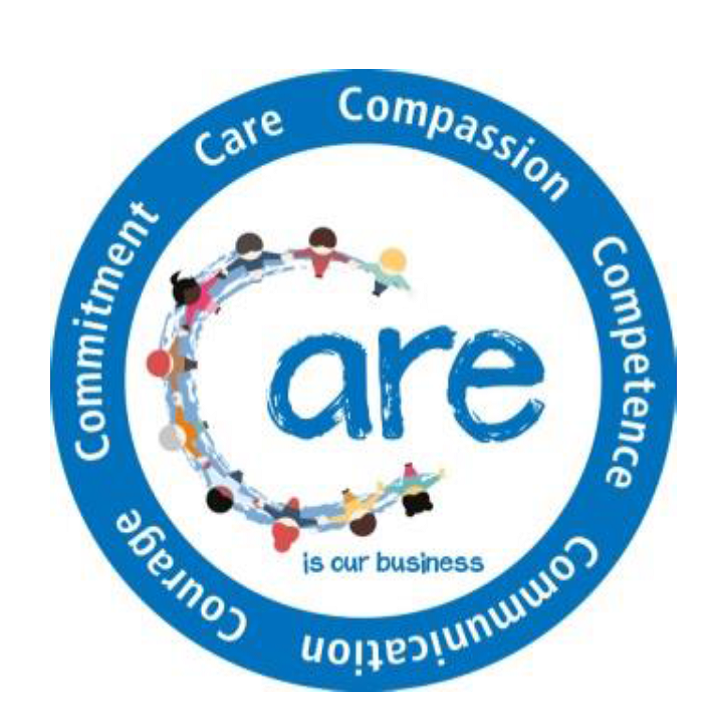
We need proper support system in place and be mindful not to treat service users/carers as “numbers” but to listen well and provide the necessary support so that they feel comfortable to engage. To me, it is very important to be aware that service users/carers can be on medication and so we need to be mindful of this and for us to treat people with respect and dignity.
Equally, when we encourage service users/carers to apply for opportunities/positions, we need to consider providing post interview feedback and coaching if for example they are not successful as it can have a detrimental impact on their emotional wellbeing.
We must develop the procedures to encourage, engage and prompt people to progress. If service users/carers don’t feel confident, they will lose the trust in staff and in the system. This will be sad loss for QI projects when you are trying to engage our experts by experience, service users and carers.
Is there anything else you would like to share with others across ELFT about your experiences that haven’t yet been mentioned?
Once Service Users & Carers have engaged and are contributing towards improvement projects I feel it’s important to provide them with access to the resources needed to do the job. I am ready to start a project and would like to know how to start one up please.
For example, myself and other carers have invested our time in compiling and editing our Newham Mental Health Carers Newsletter. However, we were not initially provided with access to computers and resources related to printing and distribution but some ELFT staff kindly volunteered to assist us and distribute our first edition.
I would like to use my concerns about the needs of people in supported housing. I’ve also recognised that we need to do more for people with mental health issues during their stay in physical health hospital environments. I would like to use my energy and expertise to help people make improvements in these areas but need guidance. I would like to know how are people supported when starting a project and it fell on the way side? What is the procedure to get them back on board?
I would also like to thank all staff that has helped me and other carers since joining the trust. The training, the awards, the services, and all of the other engagements.
Editorial Note
I have always been very impressed with Zhenreenah’s energy and passion to suggest improvements to services.
As a carer myself, I can resonate with many of the issues articulated in this article and I hope it gives you an insight into the invaluable and compassionate work of Carers.
The opportunities to engage both within QI Team and People Participation offers many opportunities like that provided to me to assist the QI team with my expertise. By sharing the unique stories we can collaboratively improve the services by exposing the gaps and integrating the various pathways to improve the client journey.
As Zhenreenah mentioned, we need to be mindful always to treat service users/carers with compassion and to provide the support to guide then forward at their own pace as it is easy to be myopic and focus too much on statistics and charts.
The human element – the person – should always remain at the core and form the epicentre of the 6 “C” Quality of Care mantra.
This is useful for sharing just this resource rather than the whole collection
A People Participation Lead’s perspective on QI
Leigh Bell, People Participation Lead for Newham Adult Mental Health services tells us more about her role and service user and carer involvement across the Trust.
Could you give us a brief summary of your role and what a typical day at work is for you?
I am the People Participation Lead (PPL) for Newham which means I am responsible for getting interested service users and carers involved in the work of the Trust (and sometimes also elsewhere). There is really no typical day although every day usually consists of at least one meeting (as a minimum) be that with other staff/external parties or with service users/carers. My day usually starts navigating the treacherous roads/tow paths of East London.
What do you enjoy most about your role?
The variety of people that I meet especially the service users and carers and seeing them get inspired by how their experiences and skills are sought and valued by the Trust. Seeing them realise that they are the experts of their experiences and as such have so much to offer. I love facilitating service users and carers to train others (staff and students) and seeing their confidence grow and their input appreciated.
What do you do in your day-to-day work to support us to continually improve?
I facilitate the voice of the service user and carers in many different areas of improvement. I support them to participate in audits, be active members of interview panels to improve the quality of staff that we recruit and to train new, existing and future staff. I also attend my local QI forum and via that and the Service User and Carer QI Steering Group we try and match up service users and carers with QI projects that they would like to be involved with. To me it is common sense to have service users and carers as part of QI project teams – how can we improve something without the participation of those using the service?
Do you think it is important for the leaders of this Trust to embrace quality improvement? Why?
Absolutely, to inspire everyone else staff, service users and carers alike to also embrace it and feel supported when they are doing so. It reassures everyone that they can make a difference and be a positive part of change and improvement.
What would you say to someone who feels that QI is a box ticking exercise and is unsure about the benefits of QI to us as a whole Trust and themselves individually?
Give it a go – see for yourself. Be open, look at the evidence and successes of previous and existing QI projects. It is a different way of working and often with a different set of people. Often a change is as good as a rest!
Do you have a story of something inspiring that has occurred through QI?
Not through a QI project directly however I encourage service users and carers to participate in QI bespoke training and it such good fun. Service users and carers are often subsequently motivated to sign up to further QI training such as Pocket QI. They then train alongside staff members, this can mean that connections are formed at an early stage and staff can experience directly the importance of having service users and carers as part of QI Project Teams even before the project itself has formulated.
How do you see the role of QI in the Trust as we move forward?
QI will hopefully become even more embedded into the day to day work of the trust and the benefits will be self-evident.
Finally, could you sum up what quality improvement means to you and why you feel it is so important to us as a Trust to embrace.
It is a fancy term for using a particular system for improvement. We all need to be striving for better and too improve and there is always room for more. We should be very worried if we start to think that we are so good or so ‘outstanding’ that we don’t need to make any further changes.
This is useful for sharing just this resource rather than the whole collection
Service User Perspective: Barriers to Engagement with QI Projects

Tony Fulham
Thana Narashiman , QI Communications Assistant, interviewed Tony Fulham; service user in July 2017, about his personal journey and barriers to engaging with QI Projects at the Trust and offered his advice.
Please share with us some barriers you faced to getting involved in Quality Improvement (QI) Projects?
I believe the biggest barrier to engaging was myself. I had ‘false pride’ and was not able to manage change well. The change of personal status – from being employed full time to becoming the victim of a serious crime which caused me severe trauma.
As a result of this incident, I was medically diagnosed with Post Traumatic Stress Disorder (PTSD) arising from the trauma. I was referred to my local mental health services at East London Foundation Trust (ELFT).
My engagement with the services caused me confusion as I wasn’t sure what it was all about. I was not aware of what resources were available to me to access and meeting the criteria for treatment was itself quite confusing and alien to me as I was functioning under adverse shock.
What other personal barriers were you facing?
I felt that my identity totally changed. It was also those environmental changes – I wasn’t aware of my local community and my neighbours and became increasingly isolated, that led to change.
Once I accessed Mental Health Services there was a lot to learn and I found it hard to take it all in.
I also lived with survivor’s guilt and had to come to terms with my personal circumstances through understanding what was back then PTSD and how it had impacted me with those changes within myself for my self-understanding.
I struggled for self-awareness of me with coming to terms with my personal change of circumstance(s) once I was discharged from local Community Mental Health Team (CMHT) services. I was left confused about state entitlements like entitlement to Department Work and Pensions (DWP) benefit allowances, housing needs etc. and to accessing these services were very fragmented I feel at the time looking back now.
What experiences did you gain from confronting the challenges?
I stumbled across the ELFT Working Together Group and became involved through tenacity as I was approached to be the new chair of a local HealthWatch Mental Health Task Group.
From all of this, I wanted to learn more about recourse to the state benefits system in order to help other people like myself. I successfully trained as a generalist advice worker within a local advice centre. I truly enjoyed this engagement as I got to meet people in my community which helped addressed my isolation and trepidation within society.
I also learnt how to use a computer & discovered new soft skills within me which were invaluable. All this helped me to build upon my confidence.
What were your experiences of attending other ELFT meetings?
My first Tower Hamlets Working Together Group was very new – and sadly it was not a warm welcome. The group’s focus is on reintegrating people who’ve been discharged from the service. From my observation, it seemed to be very much “the old guard”, people had been in the group for years and years. It put a lot of people off from attending, I felt I was alone again.
I had a basic experience of chairing meetings with the NHS and so volunteered to become the new Chair of the Tower Hamlets Working Together as I thought it would help my recovery. I also wanted to influence positive change and felt the group needed a fresh approach.
What can you share with us regarding any other barriers that we can change?
A simple matter : meeting rooms not being very welcoming with no windows and not a dark room and also no windows can be opened due to Heating and Ventilation (H&V) system.
Since meetings were alien to me, I really did not know the “rules” of a meeting so simply felt I couldn’t leave the room when needed to.
I didn’t have any personal reference or the training to know how to behave and I felt like an actor, not truly being myself. So any training would be useful for all.
What are the opportunities moving forward?
As part of my engagement here and with the People Participation Team in general, I am now involved with the monthly ELFT QI steering group and I am going to be co-chairing the meeting with the current chair, Erayna soon.
I have also been engaged wider as part of local Metropolitan Police Safer Neighbourhoods meetings and Community Safety Board – as I wanted to give back to the community when I was within my local CHMT.
What is your passion?
“I want to make a big impression” : “6 foot manhole imprint” and “something that’s long lasting.”
I would like to witness improvements to the Mental Health service for people entering the service in the future and to use my lived expert experience to a better use.
Prior to being a victim of a serious crime where I nearly lost my life, I was a more of a taker and now I want to be a giver. It has really changed my life seeing life more positively now.
I don’t want to be a passenger anymore – I wish to be involved in QI to acquire new skills and training and be a driver of change for both carer, service users and staff members to share back.
Tony Fulham
Service User
21 August 2017
This is useful for sharing just this resource rather than the whole collection
My Quality Improvement Journey…
Bernadette Tilley, QI Communications and Events management Lead, interviewed Holly Smith; ex service user and QI project team member for Gold Standard Environments, about her QI experiences and journey so far…
I was on Gardner ward as a service user just over a year ago. When I was on the ward I was struck as to how different Gardner ward was compared to other wards I had been on before. There was a lot of room for improvement; as a result, I didn’t have the greatest time on the ward. But, whilst I was there and nearing discharge, one of the ward managers mentioned that they were going to be starting a quality improvement project in order to improve the ward. They asked me to come up with some ideas as to what could be improved.
At that point, I didn’t have a lot to do with my time, so I agreed and put together a list of the improvements that could be made to the ward. Having been a patient on other wards I had seen what was possible. There was quite a lot that other wards had done or were doing that were lacking on Gardner. It was little things that you don’t really think about, but you notice when you are living there for a long period of time.
For example; there were no clocks on the walls of Gardener. That was quite disorientating, when there was no concept of time. It didn’t help me feel things were getting back to “normal” again. Someone delivering care or visiting wouldn’t be impacted by a lack of clocks in the same way. Another little thing was not having a hair tie for long hair. It sounds like such a small thing, but, I have quite long hair, and it quickly gets very frustrating when it is constantly in the way; I was constantly dipping it in meals or paint. You can get 100 for £1 in Primark; they’re not difficult or expensive to get hold of and yet they can make so much difference.
The quality improvement project; Gold standards on Gardner ward, is aiming to provide a 3 star + level of care, it’s a bit like the rating for hotels. This is a very broad piece of work as it is trying to improve the overall experience of a service user’s time on the ward. It covers so many areas! We will be measuring using satisfaction surveys from service users. In order to get the most accurate data we have spent a year refining how we collect the right feedback, so there has been a lot of work around designing the satisfaction survey; what questions we ask service users, how we frame them, the categories of questions and also providing service users with the opportunity to expand on answers where needed. All this has been groundwork in preparation to start our measurement phase of the project and collect data. We’ll be testing our change ideas and gathering data throughout 2017.
So, why did I get involved in the first place?
Well, having been a patient and being on the receiving end of care I wanted to help. As mentioned earlier, I know how much a few small things can make a real difference to someone when they’re feeling very vulnerable and being cared for. With small changes it is easy to raise the standard of care on a ward and directly impact a person’s experience of being there. Little things can go a long way to helping recovery on a mental health ward.
I also needed something to challenge me straight after being discharged, so I got involved straight away. It meant that my experiences of being a patient on the ward were fresh and I could a unique perspective of what it is like to be on the receiving end of care and what is good or bad. I went with the project team to Alie Street to make an impact on the directors who were interested in the project.
As to fitting in this extra work into my schedule – I haven’t had any problems. My role is advisory and making sure the aim of the project and perspectives are right. I am able to dial into meetings too, so I don’t have to make long journeys to join the team. It’s quite flexible.
Professionally I have experience of project management; quality improvement methodology is a little bit different, but it’s been very interesting using these methods and there have been occasions in my own job where I have used these methods, for example, in planning sessions where there have been loads of ideas floating round and it’s difficult to sort them out, I have used nominal group technique with my team and analysed the ideas using an affinity diagram.
B ased on my experience of QI, I believe the role of the service user should be reminding the team what the key focus is for their work and what the objectives are of the whole project. Service users can also offer a unique perspective on whether suggestions and changes will actually help, as they know what it’s like to be on the receiving end of care. I think this input helps keep the team grounded and remember that they are doing this all to help the service user. A working example of this on our project has been staff wanting to add magazines in wards. It sounds like a good idea, but some magazines sell ideas of what the ideal body image is, or how you should look, or perhaps buying or having certain things will make you happy, popular or find love. To a vulnerable person having a tough time on a mental health ward and trying to recover, these subliminal messages are unhelpful. So it is better from a service user point of view to have magazines that focus on positive messages, such as health and wellness, hobbies etc.
ased on my experience of QI, I believe the role of the service user should be reminding the team what the key focus is for their work and what the objectives are of the whole project. Service users can also offer a unique perspective on whether suggestions and changes will actually help, as they know what it’s like to be on the receiving end of care. I think this input helps keep the team grounded and remember that they are doing this all to help the service user. A working example of this on our project has been staff wanting to add magazines in wards. It sounds like a good idea, but some magazines sell ideas of what the ideal body image is, or how you should look, or perhaps buying or having certain things will make you happy, popular or find love. To a vulnerable person having a tough time on a mental health ward and trying to recover, these subliminal messages are unhelpful. So it is better from a service user point of view to have magazines that focus on positive messages, such as health and wellness, hobbies etc.
My impression of quality improvement in the project I’m involved in is that staff have found and are finding this work incredibly valuable. They are not dictated to from the top. They chose to do the project, and it has all come from them. These are busy frontline staff who are passionate about their work and the care they deliver to patients. I think that’s one of the most important aspects of improvement work; staff need to buy in to QI. There’s a created and shared responsibility within the project team to keep things going. e.g. safety huddles; these are more likely to succeed due to created responsibility.
It’s so important to get service user input in quality improvement work, project teams will find it very valuable. However, it’s important to remember that service users cannot be around 24/7 and for the whole duration of an improvement project. Some may only want to help for a certain period of time, and that’s OK. It’s still great to use them and their skills to help you! You may want a service user to give you feedback on one survey question, or provide ideas for one particular aspect of your project. They may have a particular interest or skill with that you can utilise in the overall project. So, involve them! It’ll still be a valuable and rewarding experience for them and you!
Click on the picture below to view the latest progress of Gold Standard Environments QI Project, presented at the 2017 QI Conference
This is useful for sharing just this resource rather than the whole collection
Quality Improvement (QI): What drives this?
 Thana, an ELFT Expert by Experience writes about his experiences at the International Forum on Quality and Safety in Healthcare and of getting involved with quality improvement at East London Foundation Trust
Thana, an ELFT Expert by Experience writes about his experiences at the International Forum on Quality and Safety in Healthcare and of getting involved with quality improvement at East London Foundation Trust
Many of us are engaged in improving our lives to make it easier for both ourselves and for other people. The challenge in Health and Social Care is how to engage with clients (service users and carers) AND collaborate with medical professionals and support staff to radically improve, advance the status quo and measure service excellence. It is about working symbiotically.
I was privileged to attend the International Forum, an IHI (Institute for Healthcare Improvement) and BMJ show at London EXCEL Conference Centre (kind courtesy of Tim and Marco) on the 26-28 April 2017, where over 3000 international delegates were in attendance. At times, it felt like I was at the United Nations. On the second opening day, there was an Amazon drum music incantation – dare I say without the rain dance – performed by our talented multi-disciplinary staff!

It was exciting to listen to the opening presentation from Lord Ara Darzi who was being interviewed by two “experts by experiences” members. Many people found this talk inspiring as it enshrined the ethos of the NHS Constitution… – “Nothing about us without us” manifested by tangible actions. This principle of engagement should always underpin all QI projects. The words of wisdom from Lord Darzi regarding the role of “experts” to enact real change are revolutionary.
The first hand stories shared by experts at the initial ELFT experience day event held at the Mile End Park Ecology Pavillion on the 26 April were fascinating with follow-up site visits to various venues. The presentation by the “experts by experiences” team at the Mile End Ecology Pavilion to over 150 International delegates were truly inspiring – which documented the various personal journeys and QI outcomes. The role-playing by fellow team members showcasing both “good and bad” practices in QI staff engagement was enlightening to the delegates. Ugly practices have virtually been eliminated at the East London Foundation Trust (ELFT) due to constant auditing of services.
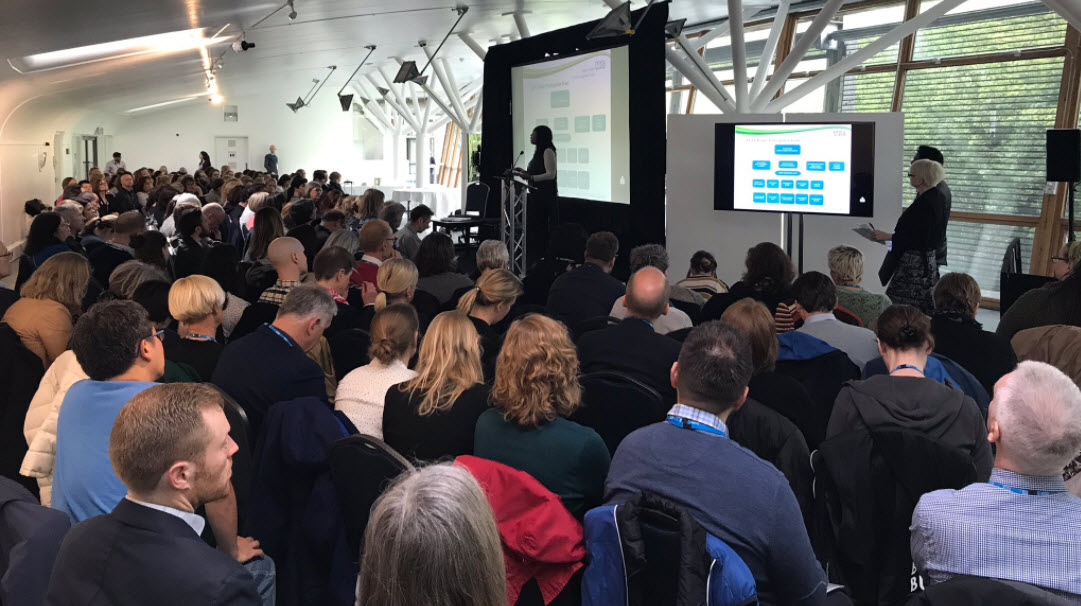
Delegates at the conference who also shared their personal experiences were awe-inspiring as they advanced forward with innovative solutions. The reality is that we have a global team of experts with diverse experiences who are constructively challenging the status quo and advancing lateral thinking to quality improvements.
I had an encounter at the conference with an ELFT staff member, Mr Farouk, who imparted very inspiring words, which have sparked me to pursue this onward journey of self-improvement and share experiences within QI engagement to humanize the process.
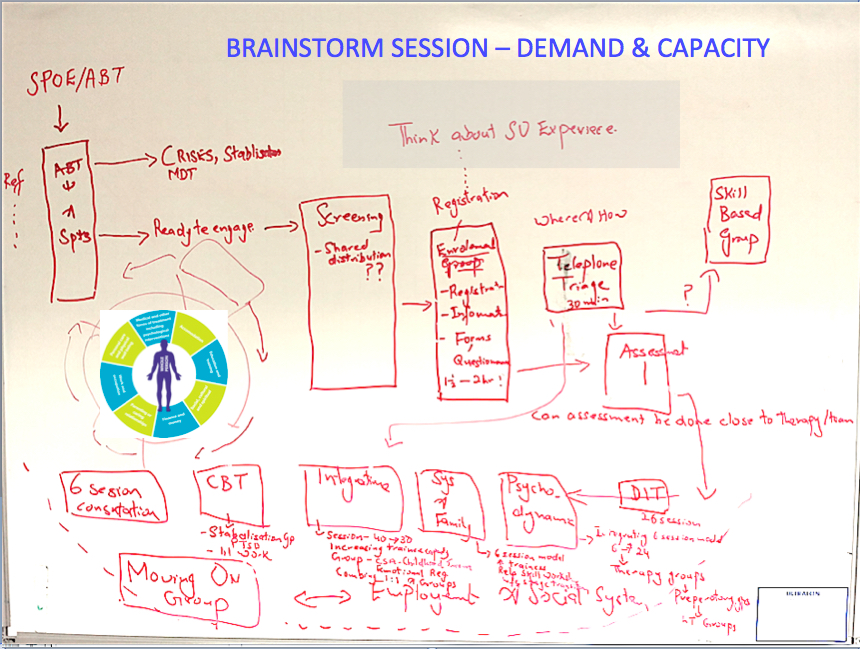 By real example, I can share good practices being enacted locally by the Psychological Therapies Unit led by Dr Amra Rao and their team. We are brainstorming innovative system redesign to tackle service demand with resource challenges and exploring innovative consulting models with clients.
By real example, I can share good practices being enacted locally by the Psychological Therapies Unit led by Dr Amra Rao and their team. We are brainstorming innovative system redesign to tackle service demand with resource challenges and exploring innovative consulting models with clients.
This blueprint diagram showcases the transformational pathways while the QI metrics are being formulated with assistance from QI expert lead, Emma.
This proactive approach initiated by Dr Amra’s team resonates with the core message shared by other “experts by experiences” at the conference which followed two core strands: “we are not waiting” and “we are patients who are impatient” for tangible advancement to improve services.
Moreover, we are reviewing holistically the “whole person” social resilience issues focused towards integrated health and social care recovery pathways as depicted below by Dr Amra Rao’s team.
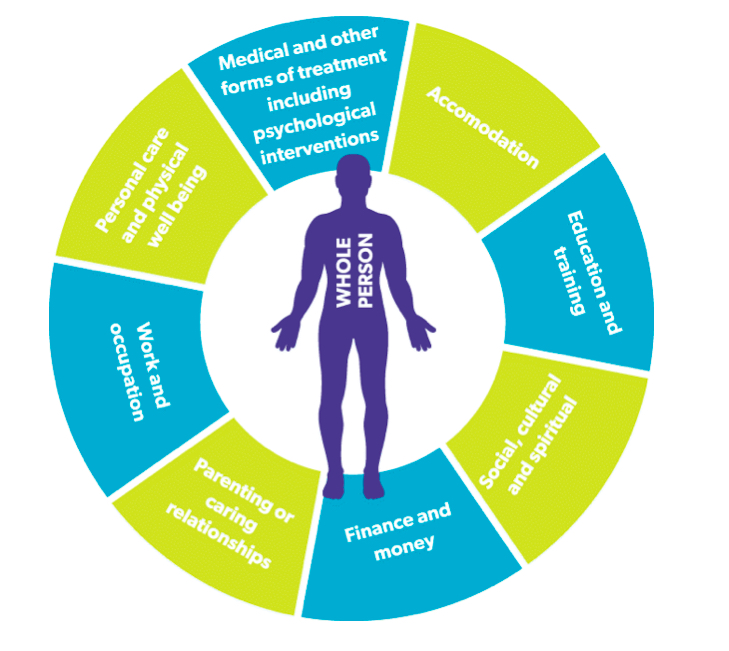
Whole Person Model diagram developed by Mental Health Wales
This international conference ended with a former NASA astronaut, Chris Hadfield, showcasing the ability of humans to work cooperatively to design innovative propulsion transport capsule systems which can land astronauts on the Moon, spacewalk in deep space and construct and co-exist in an international space station.
This IHI event may be construed as a small step for us but it is a giant step for clients to radically change the ecosystem of health and social care improvements. This is the ultimate challenge for QI and for us all to be pioneers and working symbiotically as one team to constantly adapt to change.
I end with another case example: My parents get visited daily by an exceptional District Nurse called Mary (employed by the Trust) to administer insulin at home but the positive emotional wellbeing imparted during each of her visit is awe inspiring. What drives this ELFT staff member to deliver consistent exceptional care each morning, which is always positive and inspiring? Can we truly measure this quality of care or this “driver” encoded within the psychology of this person to confer compassionate care?
If you wish to discuss any matters raised in this blog please contact me via the QI team else engage DIRECTLY with the QI team if I have inspired you to spark new projects within your domain. Engaging with QI has assisted me to inspire and improve the quality of human lives by Leading by Example. So to conclude, QI is indeed driven by ALL people.
Thana
Expert by Experience

(This blog was drafted in a personal INDEPENDENT capacity and is unedited and may not represent the views of the TRUST. )
This is useful for sharing just this resource rather than the whole collection
This is my ward round
This month Stella and Syeda from the QI team caught up with Jamie Stafford and team on Joshua Ward to find out more about the “This is my ward round” QI project.
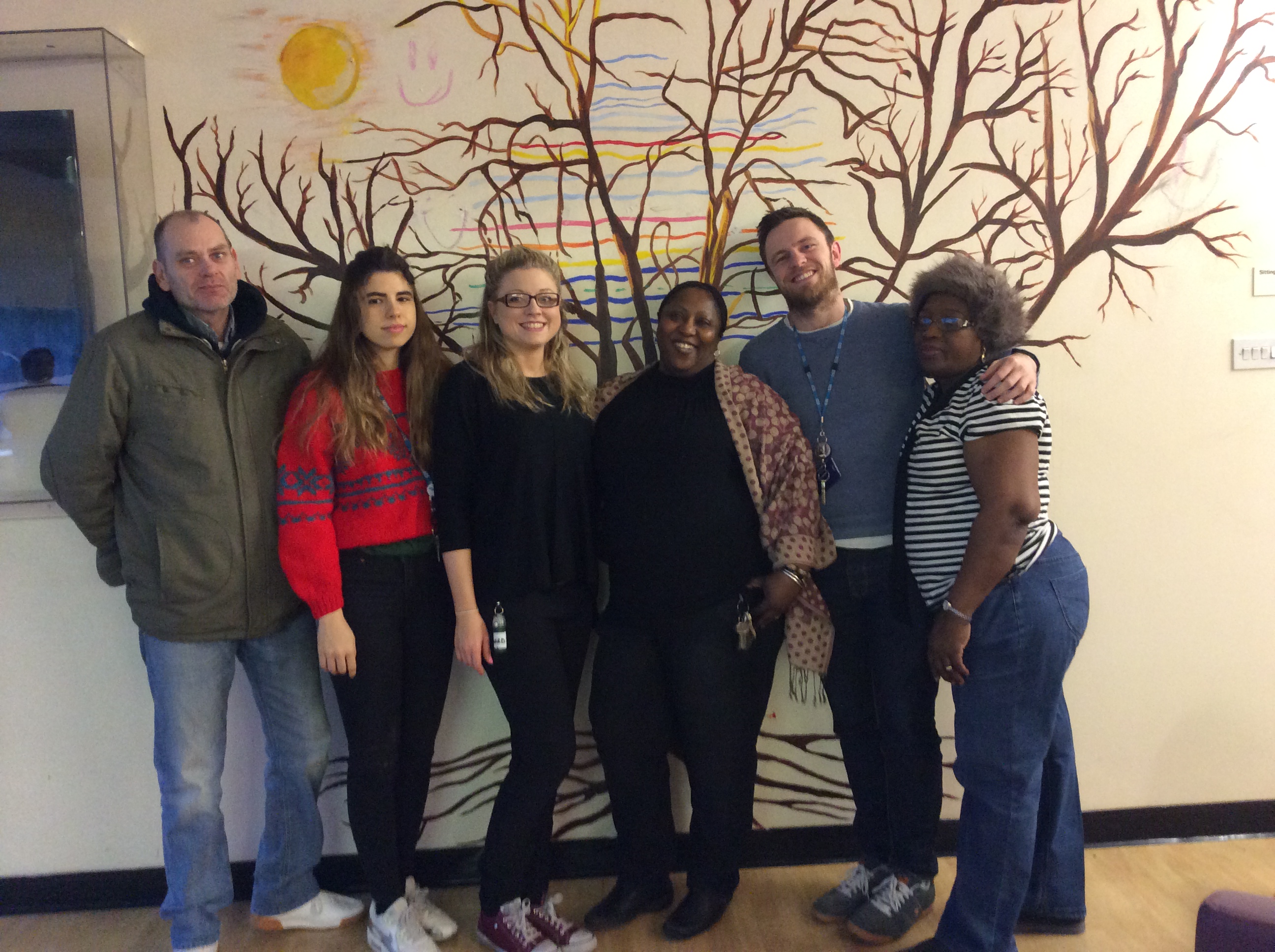
The picture from left to right is Jason Barnett, Su Ozenc, Emma Binley, Bola Johnson, Jamie Stafford and Cynthia Buck. The QI team also includes John Ryan, Daisy Mudoni and Thana Balamurali. Also big thanks should go to a nursing student Erin Mckee who has helped very much with the project.
This is useful for sharing just this resource rather than the whole collection
